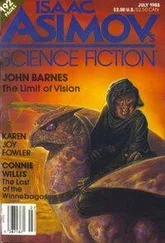A sudden rattle of applause brought me out of my reverie.
The stage was dark. I’d missed Scene One. When the lights went back up, I tried to focus on the play, so I could discuss it at least halfway intelligibly at the intermission.
“The wind is rising,” Hayley Mills said, looking out an imaginary window.
“Storm brewing,” a man, not her husband, said.
“That’s what I fear,” she said, rubbing her hands along her arms to warm them. “Oh, Derek, what if he finds out about us?”
I glanced sideways across Sara at Cath, but couldn’t see her face in the darkened theater. She obviously hadn’t known what this play was about, or she’d never have chosen it.
But Hayley wasn’t acting anything like Sara. She chain-smoked, she paced, she hung up the phone hastily when her husband came into the room and was so obviously guilty no one, least of all her husband, could have failed to miss it.
Elliott certainly didn’t. “The husband’s got to be a complete moron,” he said as soon as the curtain went down for the intermission. “Even the dog could deduce that she’s having an affair. Why is it characters in plays never act any way remotely resembling real life?”
“Maybe because people in real life don’t look like Hayley Mills,” Cath said. “She does look wonderful, doesn’t she, Sara? She hasn’t aged a day.”
“You’re joking, right?” Elliott said. “All right, I know people kid themselves about their spouses having affairs, but—”
“I have to go to the bathroom,” Cath said. “I suppose there’ll be a horrible line. Come with me, Sara, and I’ll tell you the saga of my china.” They edged past us.
“Get us a glass of white wine,” Sara called back from the aisle, and Elliott and I shouldered our way to the bar, which took ten minutes, and another five to get served. Sara and Cath still weren’t back.
“So where were you all day?” Elliott asked me, sipping Sara’s wine. “I looked for you at lunch.”
“I was researching something,” I said. “Holborn tube station is in Bloomsbury, isn’t it?”
“I think so,” he said. “I rarely take the Tube.”
“Are there any hospitals near the tube station?”
“Hospitals?” he said bewilderedly. “I don’t know. I don’t think so.”
“Or churches?”
“I don’t know. What’s this all about?”
“Have you ever heard of a thing called an inversion layer?” I said. “It’s when air is trapped—”
“They simply must do something about the women’s bathroom situation,” Sara said, grabbing her wine and taking a sip. “I thought we were going to be in there the entire third act.”
“Sounds like an excellent idea,” Elliott said. “I don’t mean to sound like the Old Man, but if this is any indication, plays truly have gone to hell! I mean, we’re expected to believe that Hayley Mills’s husband is so blind that he can’t see his wife’s in love with—the other one—what’s his name—?”
“Pollyanna,” Cath said. “I’ve been trying to remember it all through the first two acts. The name of the little girl who always saw the positive side of things.”
“Sara,” I said, “are there any hospitals near Holborn?”
“The Great Ormond Street Hospital for Sick Children. That’s the one James Barrie left all the money to,” she said. “Why?”
The Great Ormond Street Hospital. That had to be it. They had used it as a temporary morgue, and the air—
“It’s so obvious ,” Elliott said, still on the subject of infidelity. “The excuses Hayley Mills’s character makes for where she’s been—”
“She looks wonderful, doesn’t she?” Cath said. “How old do you suppose she is? She looks so young!”
The end-of-intermission bell chimed.
“Let’s go,” Cath said, setting her wine down. “I don’t want to have to crawl over all those people again.”
Sara swallowed her wine at one gulp, and we went back down the aisle. We were too late. The people on the end had to stand up and let us past.
“But don’t you agree,” Elliott said, sitting down, “that any normal person—”
“Shh,” Cath said, leaning all the way across Sara and me to shut him up. “The lights are going down.”
They did, and I felt an odd sense of relief, as if we’d just avoided something terrible. The curtain began to go up.
“I still say,” Elliott said in a stage whisper, “that nobody could have that many clues thrown at him and not realize his wife’s having an affair.”
“Why not?” Sara said, “You didn’t,” and Hayley Mills came onstage.
Beside me, in the dark, Elliott was applauding like everyone else, and I thought, It’s as if nothing happened. Elliott will think he didn’t really hear it, like the wind in the Tube, over so fast you wonder if it was really real, and he’ll decide it wasn’t, he’ll lean across me and say, “What do you mean? You’re not having an affair, are you?” and Sara will whisper, “Of course not, you idiot. I just meant you never notice anything,” and it won’t all have blown up, it won’t all—
“Who is it?” Elliott said.
His voice echoed in the space between two of Hayley Mills and her husband’s lines, and a man in front of us turned around and glared.
“Who is it?” Elliott said again, louder. “Who are you having an affair with?”
Cath said, in a strangled voice, “Don’t—”
“No, you’re right,” Elliott said, standing up. “What the hell difference does it make?” and pushed his way out over the people on the aisle.
Sara sat an endless minute, and then she plunged past us, too, tripping over my foot and nearly falling as she did.
I looked over at Cath, wondering if I should go after Sara. I had the ticket for her coat and scarf in my pocket. Cath was staring stiffly up at the stage, her coat clutched tightly around her.
“This can’t go on,” Hayley Mills said, looking now fully as old as she was, but still going gamely on with her lines, “I want a divorce,” and Cath stood up and pushed past me, me following clumsily after her, muttering, “Sorry, sorry,” over and over to the people on the aisle.
“It’s over ,” Hayley said from the stage. “Can’t you see that?”
I didn’t catch up to Cath till she was halfway through the lobby.
“Wait,” I said, reaching for her arm. “Cath.”
Her face was white and set. She pushed unseeingly through the glass doors and out onto the pavement, and then stood there, looking bewildered.
“I’ll get a taxi,” I said, thinking, At least we won’t have to compete with the end-of-the-play crowd.
Wrong. People were streaming out of the Apollo, and farther down the street, Miss Saigon , and God knew what else. There were swarms of people on the curb and at the corner, shouting and whistling for taxis.
“Wait here,” I said, pushing Cath back under the Lyric’s marquee, and plunged out into the melee, my arm thrust out. A taxi pulled toward the curb, but it was only avoiding a clot of people, newspapers over their heads, ducking across the street.
The driver put his arm out and gestured toward the “in use” light on top of the taxi.
I stepped off the curb, scanning the mess for a taxi that didn’t have its light on, jerking back again as a motorbike splashed by.
Cath tugged on the back of my jacket. “It’s no use,” she said. “ Phantom just let out. We’ll never get a taxi.”
“I’ll go to one of the hotels,” I said, gesturing up the street, “and have the doorman get one. You stay here.”
“No, it’s all right,” she said. “We can take the Tube. Piccadilly Circus is close, isn’t it?”
Читать дальше












